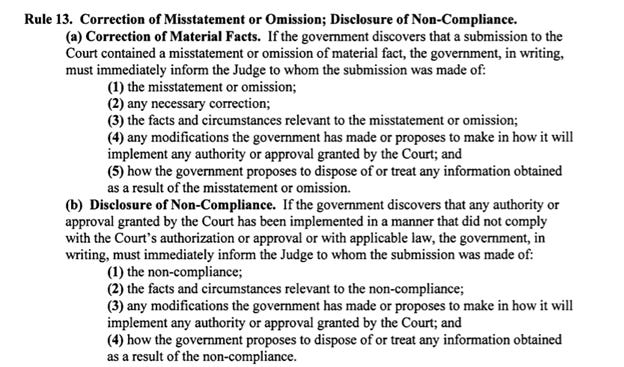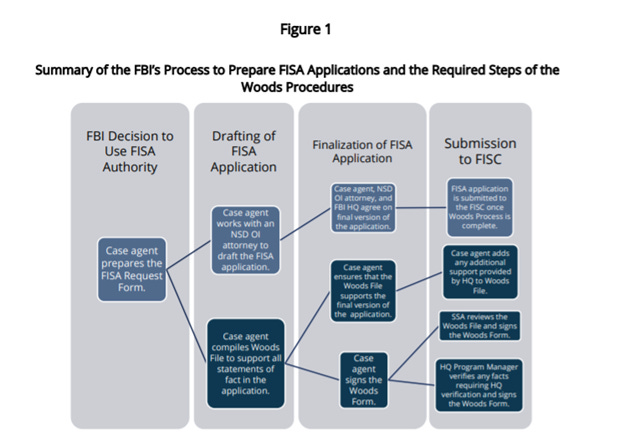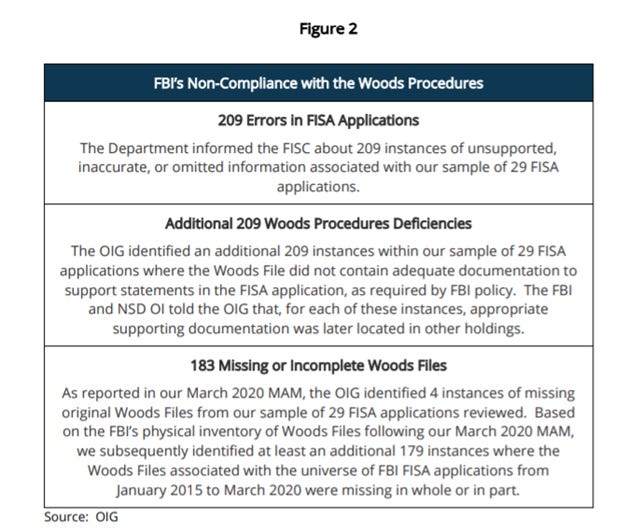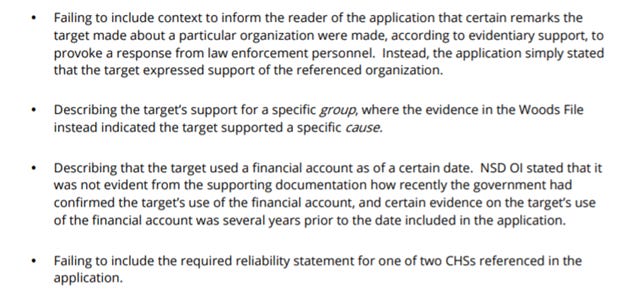
by TechnFog at The Reactionary
Today, DOJ Inspector General Michael Horowitz issued a new report on the FBI’s “Execution of its Woods Procedures for Applications Filed with the Foreign Intelligence Surveillance Court Relating to US Persons.” It’s damning for the FBI.
Before we get to the Inspector General’s findings, a bit of background is important. The FISA Court is a secret court where the government is present but the accused is not. As IG Horowitz explains:
“Unlike the use of other intrusive investigative techniques (such as wiretaps under Title III and traditional criminal search warrants) that are granted in ex parte hearings but can potentially be subject to later court challenge, FISA orders generally have not been subject to scrutiny through subsequent adversarial proceedings.”
Because this is an ex parte hearing, the DOJ/FBI have heightened duties of candor. According to the FISA Court’s local rules, the government is required to disclose all material facts and correct any misstatements of material facts:
This latest audit by IG Horowitz focused on the FBI’s compliance with the Woods procedures. This is how the process works:
Last year, IG Horowitz reviewed 29 random FISA applications. He found “that the FBI was not meeting the expectations of its own protocols.” As he reported in March 2020:
“We identified numerous instances of non-compliance with the Woods Procedures in the 25 Woods Files that were made available to us to review; and we reported that the FBI was unable to produce the original version of the remaining 4 Woods Files we requested.”
More concerning are the latest discoveries after an audit of more FISA applications. These include:
“over 400 instances of non-compliance with the Woods Procedures in connection with those 29 FISA applications”
“over 7,000 FISA applications authorized between January 2015 and March 2020, there were at least 179 instances in which the Woods File required by FBI policy was missing in whole or in part”
The more material errors (aside from losing their own files) included:
To put this into context, in December 2019, after…
Continue Reading



